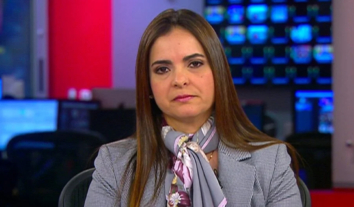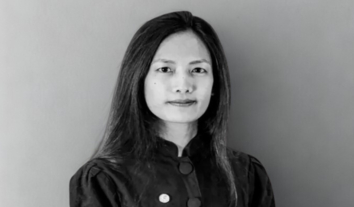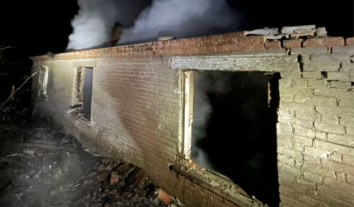Why it is important to compile a blacklist of officials involved in human rights violations in Crimea
Since the occupation of the Crimean peninsula, the Russian Federation, as an occupying power and party to an international armed conflict, has blatantly ignored the norms of international humanitarian law and systematically violated the human rights of Ukrainian citizens protected by the Convention relative to the Protection of Civilian Persons in Time of War. Through politically motivated persecutions, arbitrary imprisonment in trumped-up criminal cases, illegal house searches and trials in the occupied Crimea, deportations of political prisoners and ignoring their situation in detention, Russia systematically violates its obligations under international humanitarian law and international human rights law.
During the ten years of the Russian occupation of Crimea, national and international human rights organisations have documented numerous cases of enforced disappearances, torture, extrajudicial executions, politically motivated persecution and illegal detention of Crimean activists, the use of “legal” and extra-legal mechanisms and instruments to directly and indirectly discriminate against the Crimean Tatar indigenous population and Ukrainians in Crimea, and to destroy any form of resistance to the occupation or to maintain ties with Ukraine. Since the beginning of the full-scale invasion of Ukraine by the RF, the number of human rights violations in Crimea has been increasing, but no one has been brought to justice for all these crimes.
All illegal actions by security forces against the civilian population on the territory of the temporarily occupied Crimea are committed by local officials – collaborators or relocated Russian citizens: investigators, prosecutors and judges. The personal data of these criminals is collected and documented by the Human Rights Centre ZMINA to include them in the Black List of officials and to carry out further advocacy in Ukraine and abroad, including the imposition of personal sanctions on such officials.
What is the purpose of collecting personal data of officials?
In order to be able to bring the occupation officials to criminal responsibility for human rights violations in Crimea in the future, there must be an effective mechanism at both the national and international levels.
Therefore, the creation of the Black List of Officials aims to show a comprehensive picture of the number of officials involved in the persecution and illegal detention of civilians in the occupied Crimea and the territory of the RF, as well as the types of crimes committed by these officials, in order to impose personal sanctions. Thus, the Human Rights Centre ZMINA has already identified more than 260 officials involved in the persecution of Crimeans.
Our Blacklist of Officials contains information on Russian FSB officers, investigators, prosecutors, judges, heads of detention facilities, prisons and medical services in occupied Crimea who have been involved in human rights violations and gross violations of the norms of international humanitarian law against activists, journalists, human rights defenders and the pro-Ukrainian society during the ten years of occupation.
Stages of information gathering
To ensure that the personal data of each subject is collected as accurately and comprehensively as possible, and to be able to consider in which specific cases of human rights violations their names appear, the information gathering process includes the following stages:
- analysis of the facts of all possible types of persecution, illegal searches, detentions and imprisonments of civilians by the occupation authorities of Crimea, primarily in relation to illegally detained political prisoners;
- identification of officials involved in the analysed facts of human rights violations and violations of the norms of IHL;
- collection of information about the identified officials from open and closed sources (name, date of birth, citizenship, TIN, passport series and number, biographical data, position at the time of the crime, position at the time of the study, description of the crime, cases of which political prisoners the person is involved in, search for photos, etc;)
- systematisation of the collected information into a general list for further use.
What challenges and problems arise when searching for information?
Considering that over the past few years, the Russian Federation has been trying to conceal from the public, journalists, human rights defenders and other stakeholders information about officials involved in the persecution of civilians in the occupied Crimean peninsula, the problem of access to personal data of officials from open and closed sources arises. After all, information on court decisions in cases involving Ukrainian citizens is gradually disappearing (deleted) from the websites of Russian courts.
A large number of cases under the articles related to “high treason” and “sabotage” are classified both for the relatives of the affected persons and the public. Such circumstances make it impossible to search for information from open sources and restrict access to data that is classified or insufficient for a quality systematisation of the data to impose personal sanctions on an official in Ukraine or abroad.
At the same time, despite the difficulties in finding information about the officials who deliberately violate the rights of Ukrainians on the territory of Crimea on a daily basis, we must continue to make every effort to bring them to justice for their crimes both at the national and international level.
What “principles” do officials follow when they illegally detain or convict Ukrainian citizens in Crimea?
For the occupation officials, it does not matter whether a person has a disability or whether their health condition does not allow them to serve an illegal sentence in places of detention or places where there is no appropriate medical care. As practice shows, the RF itself violates its own laws, for example, when it imprisons people with disabilities who, according to the law, cannot serve their sentences in prisons due to their health condition. The trend of violation of its own legislation by occupation officials can be seen in the case of Oleksandr Sizikov.
Oleksandr Sizikov is one of 117 Crimean Muslims who have been persecuted by the occupation authorities for alleged involvement in Hizb ut-Tahrir. In 2009, Oleksandr Sizikov was involved in a road traffic accident, as a result of which he sustained numerous injuries and became completely blind. He received a group I disability. In addition to the difficulties associated with adapting to life without sight, Oleksandr Sizikov also fought for the rights of those repressed in the occupied Crimea.
On 7 July 2020, another wave of arbitrary searches of Muslim homes took place in Crimea, after which six people were taken into custody and Oleksandr Sizikov was placed under house arrest due to his disability. The prosecutors in his case were Serhii Volodymyrovych Aidynov and Kornieieva S. V. The senior investigator of the FSB Office in the “Republic of Crimea and Sevastopol”, senior lieutenant of justice Serhii Bosiiev and another investigator Oleksandr Lavrov were involved in fabricating the case. The judges of the “Kyiv District Court of Simferopol” who presided over the case against Sizikov were Olha Pavlivna Kuznetsova and Kateryna Valeriivna Chumachenko.
On 17 May 2023, the Southern District Military Court of Rostov-on-Don sentenced Oleksandr Sizikov who is blind to 17 years in prison. The judge in this case was Kyrylo Mykolaiovych Kryvtsov. On 13 September 2024, the Military Court of Appeal of the city of Vlasikha, Moscow Region, presided by Judge Maksym Oleksandrovych Panin, upheld the verdict and ordered Sizikov to be taken into custody. The very next day, Russian police officers came to his home to arrest him, threatening him with the use of force and liability in case of “failure to comply with the lawful demands of police officers”.
This all happened in contravention of Russian law, because, according to a Russian government decree (RF GD No. 54 of 6 February 2004 “On Amendments to the List of Diseases Preventing the Serving of Sentences”), having a disability accompanied by total blindness is grounds for release from serving a sentence.
The “authorities” of the temporarily occupied Crimea also intend to intimidate Crimean Tatar youth with abductions and trumped-up cases and sentences, taking away their opportunity to build their future.
As in the case of Appaz Kurtamet, who in July 2022 lent his friend 500 hryvnias. On 22 July, he was detained in Henichesk by Russian security forces, and his detention was formalised at the Chonhar checkpoint on the administrative border of Kherson region with Crimea. From there, he was sent to a filtration camp, where a phone check revealed that Kurtamet’s friend, to whom he had lent money, was serving in the volunteer battalion Crimea. The Russian FSB investigators classified his loan as “financing of an illegal armed group”.
Until 8 October 2022, nothing was known about Appaz Kurtamet’s whereabouts and status. His parents made attempts to find out the whereabouts of their son.
Two months later, in October 2022, a judge of the Russian-controlled Kyiv District Court of Simferopol, Viktor Krapko, imposed a pretrial restraint on Appaz Kurtamet in the form of detention on suspicion of committing a crime under Part 1 of Article 208 of the Criminal Code of the RF (“Organisation of an illegal armed formation or participation in it”).
Judge Oksana Karchevska announced the verdict in the criminal case, found Kurtamet guilty and sentenced him to seven years in prison, with the first year to be served in prison and the rest of the term in a maximum security penal colony.
We see that the Russian repressive machine against Ukrainian citizens is only getting stronger, as the occupation officials have a great fear of anyone who does not support the arbitrariness and resists human rights violations by the Russian authorities.
Nari Usenko, analyst of the Human Rights Centre ZMINA









